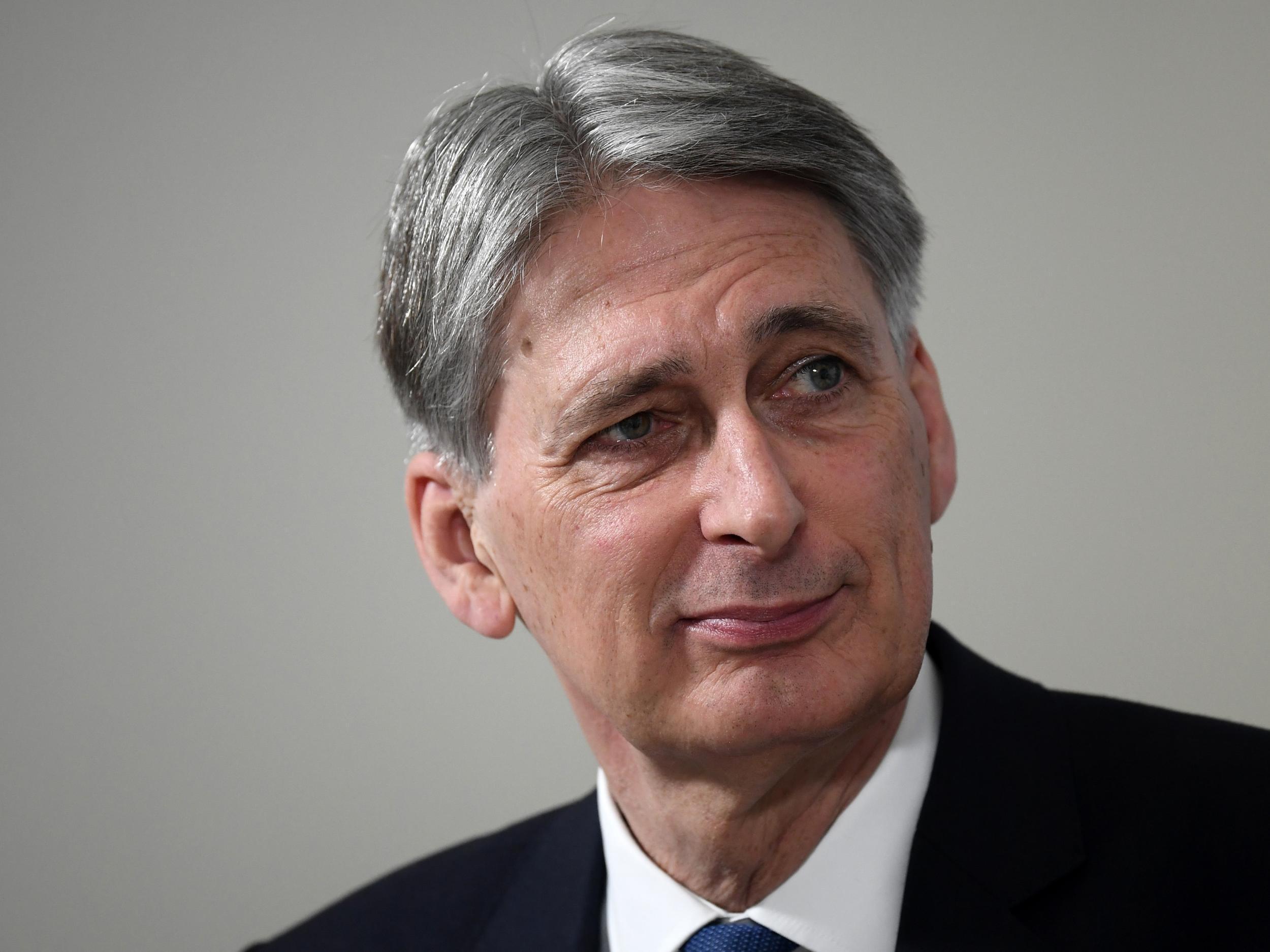UK will not become tax haven after Brexit, says Philip Hammond
Britain’s economic model will stay 'recognisable European' after it leaves the bloc, says Chancellor

Your support helps us to tell the story
From reproductive rights to climate change to Big Tech, The Independent is on the ground when the story is developing. Whether it's investigating the financials of Elon Musk's pro-Trump PAC or producing our latest documentary, 'The A Word', which shines a light on the American women fighting for reproductive rights, we know how important it is to parse out the facts from the messaging.
At such a critical moment in US history, we need reporters on the ground. Your donation allows us to keep sending journalists to speak to both sides of the story.
The Independent is trusted by Americans across the entire political spectrum. And unlike many other quality news outlets, we choose not to lock Americans out of our reporting and analysis with paywalls. We believe quality journalism should be available to everyone, paid for by those who can afford it.
Your support makes all the difference.The UK will not cut taxes and regulations to make the UK into a tax haven after Brexit, the Chancellor has indicated.
Marking a signicant change in tone, Philip Hammond told French newspaper Le Monde Britain’s economic model would stay “recognisably European” after it left the bloc,
The Chancellor had previously suggested the UK would undercut European member states to attract big businesses after it left the bloc, telling German newspaper Welt am Sonntag in January the UK was willing to do “whatever we have to” to build the economy after Brexit.
"I often hear it said that the UK is considering participating in unfair competition in regulation and tax," Mr Hammond said.
"That is neither our plan nor our vision for the future.
"I would expect us to remain a country with a social, economic and cultural model that is recognisably European."
After the Conservative Party lost its majority in the House of Commons, critics have said the Government would struggle to pass legislation relaxing regulations and lowering tax rates.
The Government came under fire in January after Mr Hammond suggested Britain would lower tax rates if it were not able to access the European market.
"If we have no access to the European market, if we are closed off, if Britain were to leave the European Union without an agreement on market access, then we could suffer from economic damage at least in the short term," Mr Hammond said.
“In this case, we could be forced to change our economic model and we will have to change our model to regain competitiveness.”
Jeremy Corbyn said the Mr Hammond's plan was a "risky strategy" and "a recipe for a trade war".
Mr Hammond's change in tone has been criticised by those within his own party. Conservative MP Jacob Rees-Mogg said the tax rate should be lowered.
"We are at our highest level of tax as a percentage of GDP since the 1960s,” he told The Times.
“This is not where we ought to be and it should be coming down."
He said that lowering tax rates was not a matter of "unfair competition", but rather an "efficient economy".
In March the EU's chief negotiator Michel Barnier warned that the bloc would block a new trade deal with the UK if it slashed business taxes.
Join our commenting forum
Join thought-provoking conversations, follow other Independent readers and see their replies
Comments